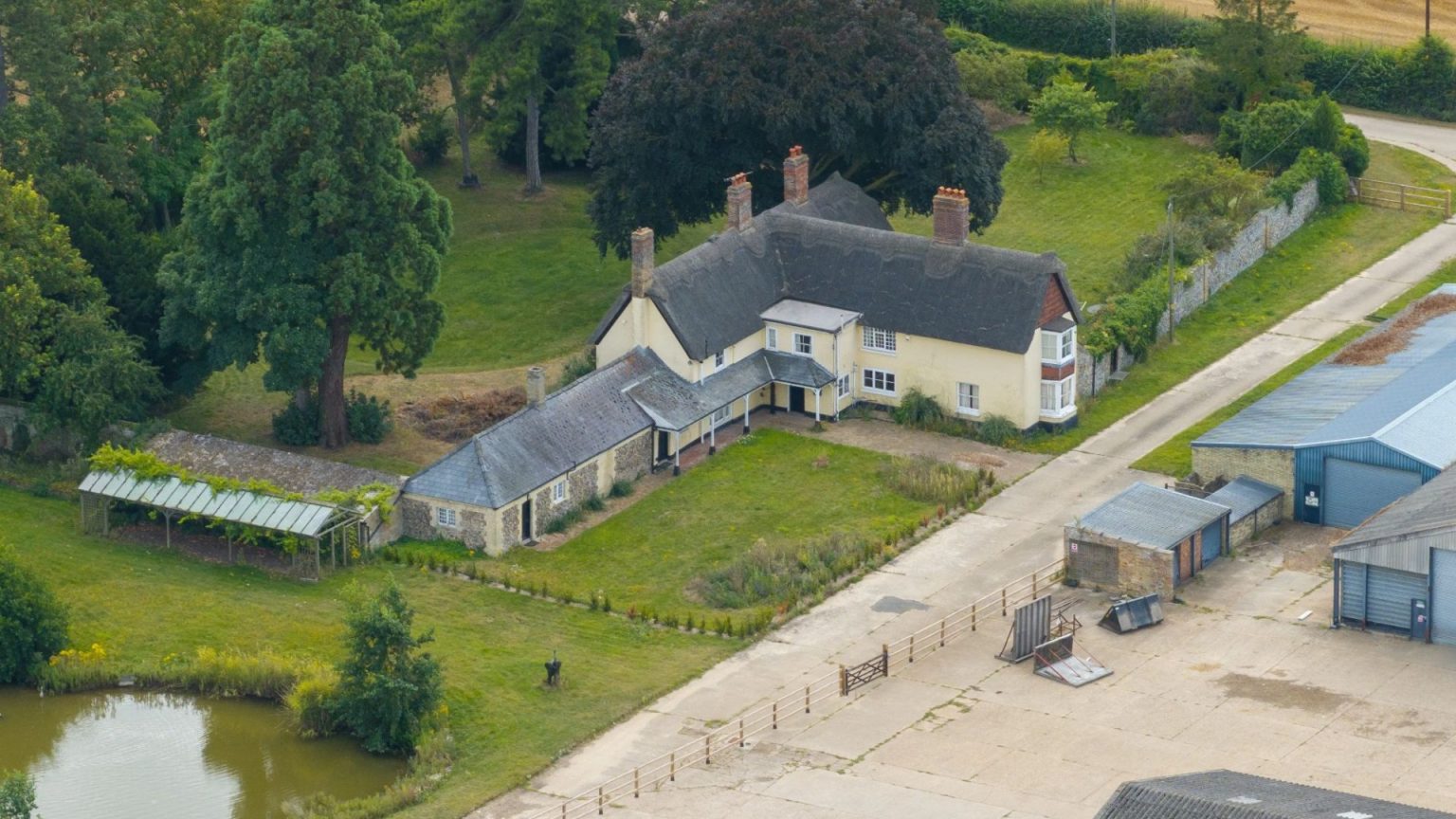Adrian Bayford, a former EuroMillions lottery winner of £148 million in 2012, has received planning permission to transform his 17th-century farmhouse, Great Wilbraham Hall Farmhouse in Cambridgeshire, into a luxury holiday rental. The property, acquired by Bayford in 2014, has been unoccupied since August 2023 and was previously used by family members. The approval by Greater Cambridge Planning allows for a comprehensive refurbishment of the two-story thatched mansion, situated on a sprawling 900-acre estate, addressing the property’s recent deterioration and bringing it back into active use.
The planned renovation encompasses a significant upgrade of the farmhouse to accommodate up to 13 guests across six bedrooms. The internal refurbishment includes redecoration, a complete kitchen refit, the conversion of a first-floor bedroom into a bathroom, and the restoration and repainting of the sash windows. The transformation aims to create a high-end holiday destination while preserving the historical character of the building. The exterior of the property and the surrounding landscape will remain unchanged, ensuring the conversion maintains the existing aesthetic integrity of the site.
The planning application specifically requested permission for a change of use from residential to short-term holiday letting, coupled with listed building consent for the proposed minor internal alterations. This distinction highlights the dual nature of the project, requiring approval both for the change in the building’s function and for the modifications to its internal structure, recognizing its status as a listed building. The planning and access statement emphasized that the external appearance of the farmhouse and its surroundings would remain unaltered, underscoring a commitment to preserving the building’s historical context.
This approved conversion marks a new chapter in the story of Great Wilbraham Hall Farmhouse. From a private residence used by Bayford’s family, it is now poised to become a luxurious holiday retreat. The refurbishment promises to breathe new life into the property, generating income while preserving its historical significance. The project represents a blend of preservation and adaptation, demonstrating how a historic building can be revitalized and repurposed for contemporary use.
The approval of the planning application signals a positive outcome for both Bayford and the local community. The creation of a high-quality holiday let could boost local tourism, bringing economic benefits to the area. Furthermore, the restoration work will help to preserve a valuable piece of local heritage, ensuring its longevity for future generations. The project exemplifies how a historic building can be sensitively adapted to meet modern needs while retaining its historical charm and character.
Bayford’s decision to convert the farmhouse into a holiday rental follows a trend of diversification among lottery winners. Many find that managing their newfound wealth involves exploring various investment opportunities, often including real estate. This venture allows Bayford to capitalize on his existing asset, generating income while simultaneously contributing to the local economy. The transformation of the farmhouse stands as a testament to the potential of historic buildings to adapt and thrive in the modern era.


